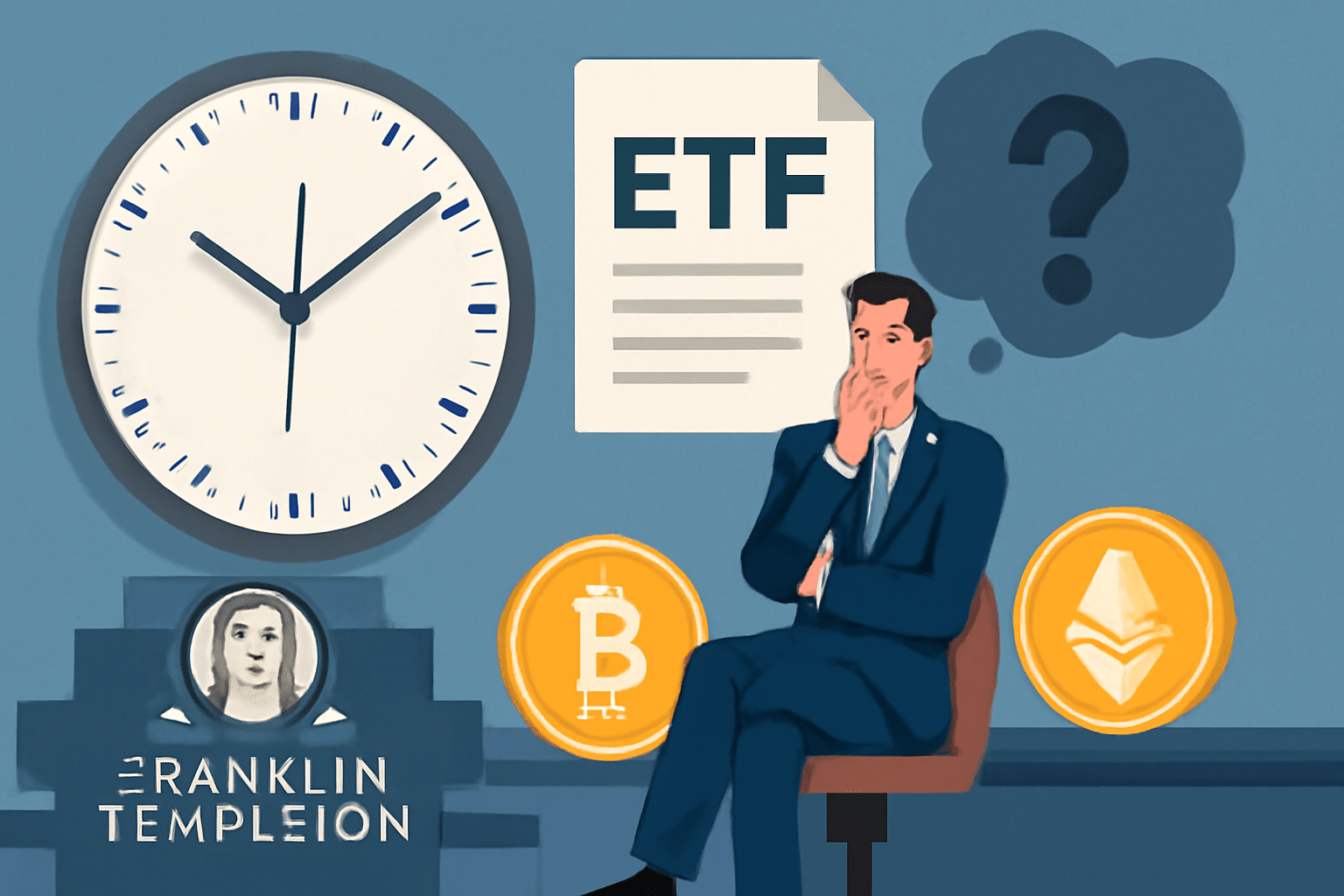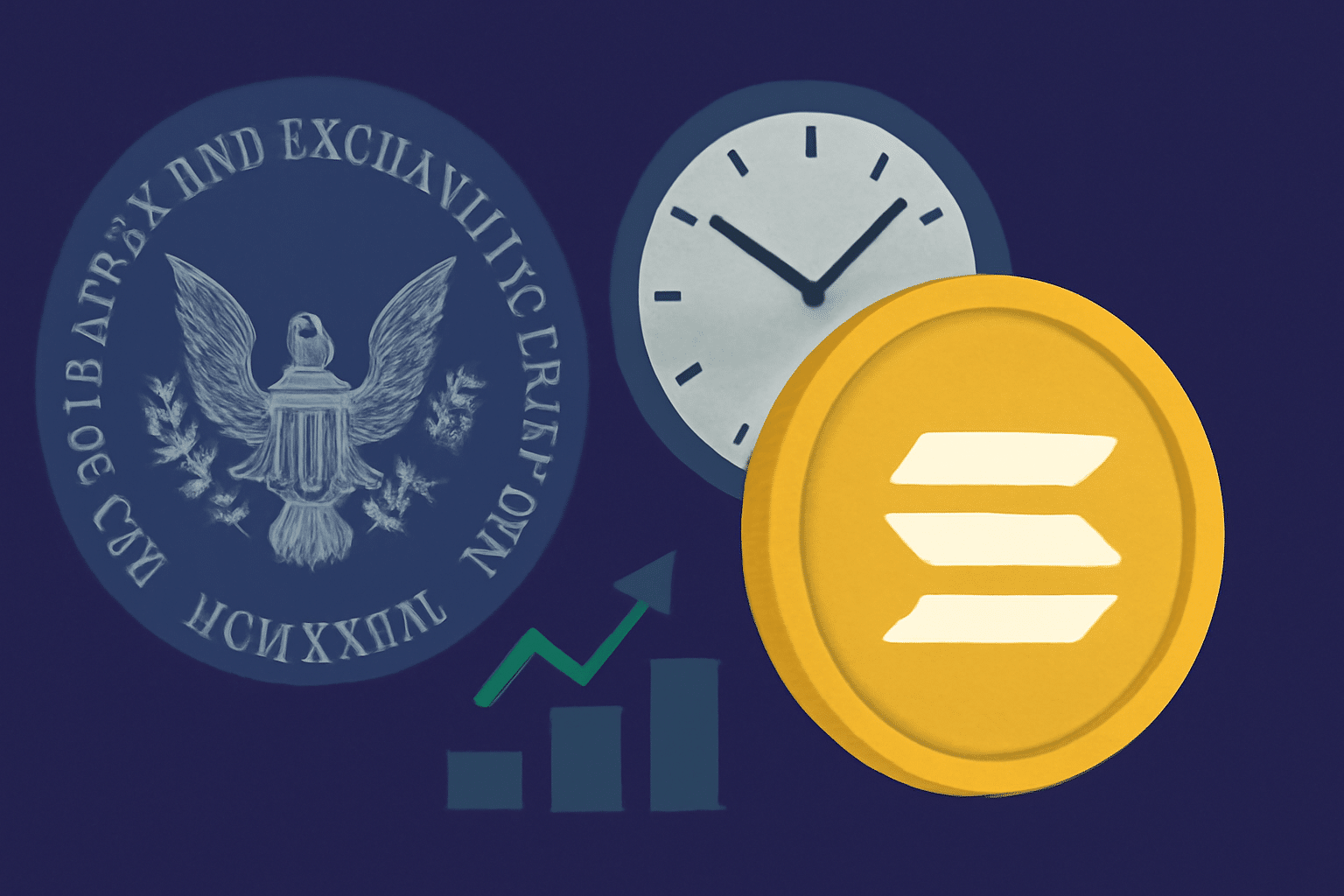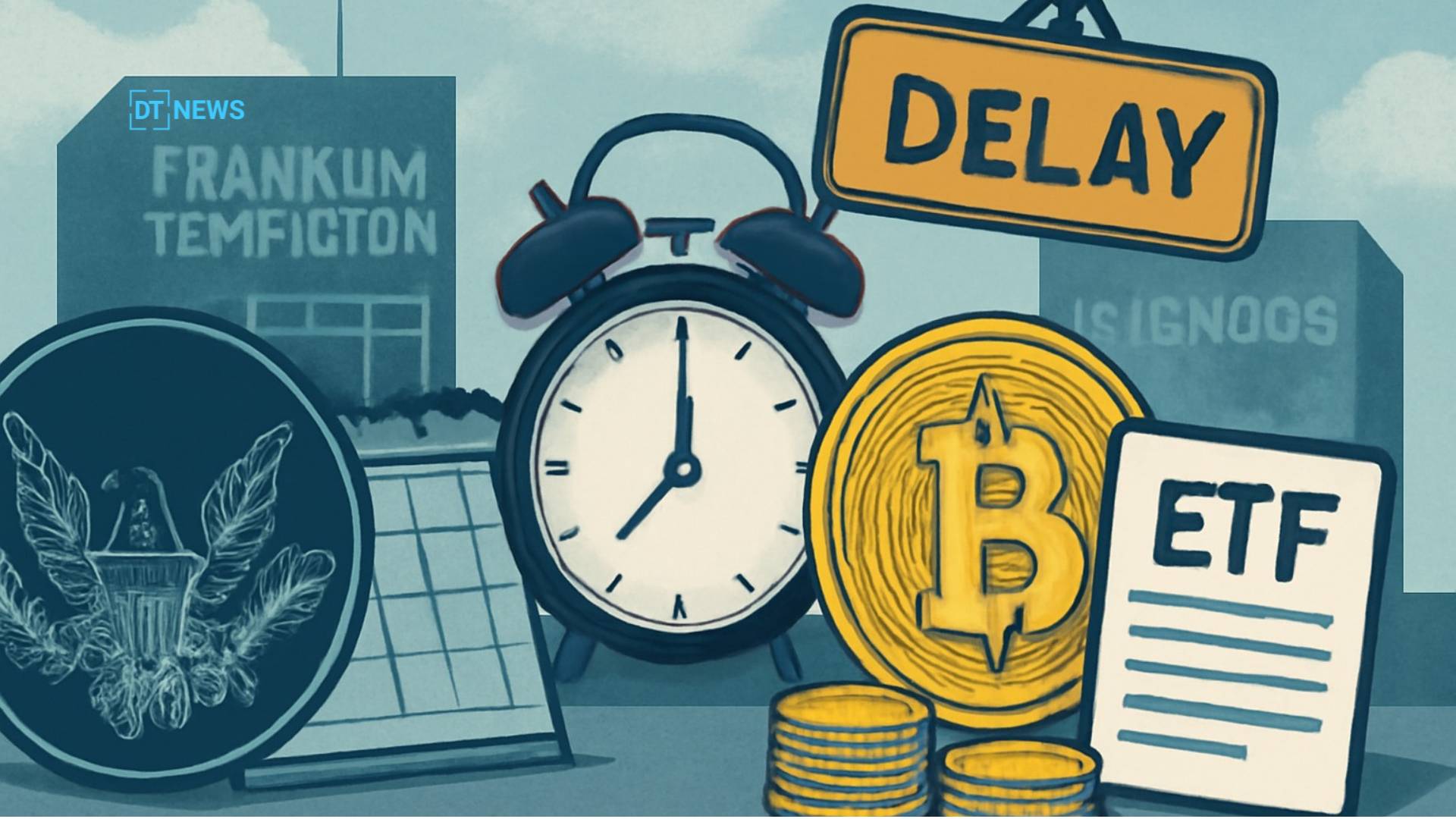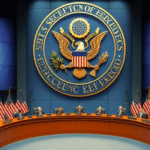The U.S. Securities and Exchange Commission (SEC) has delayed its decisions on the several applications for crypto exchange-traded funds (ETFs), including ones proposed by BlackRock and Franklin Templeton.
- Delayed Decisions on Franklin Templeton’s Crypto ETFs
- SEC’s Procedural Delays Across the Crypto ETF Sector
- SEC Delays Fuel Interest in Solana ETFs
- FAQs for Franklin Templeton
- What is the SEC’s Position on Crypto ETFs?
- When are Franklin Templeton’s crypto ETFs reviewed?
- Why has the SEC dragging its feet on crypto ETFs?
- Will Franklin Templeton’s crypto ETFs get approved?
- What does the delay mean for investors?
- Glossary of Key Terms
As per the filings released on Wednesday, Franklin Templeton’s amended proposal for its Ethereum staking ETF is slated for consideration on November 13, while its Ethereum staking ETF application has been postponed for consideration on November 14.
Meanwhile, BlackRock proposal to include staking in its iShares Ethereum Trust will be reviewed by 30th October. These delays are symptomatic of the SEC’s continuing cautious approach to the regulation of digital asset-based investment products.
Delayed Decisions on Franklin Templeton’s Crypto ETFs
Franklin Templeton‘s spot XRP and Solana ETFs had been first filed in March, but the decisions on these have now been delayed. Originally scheduled for earlier review, the SEC has extended the deadlines on both funds to November. Despite this setback, the company is hopeful that these products will eventually be approved, as there is a growing interest in the diversification of exposure to the cryptocurrencies other than Bitcoin.

Franklin Templeton and other large asset managers are standing by to take advantage of this demand. Multiple companies such as Grayscale, VanEck and Fidelity are in the queue to launch Solana-focused ETFs. The SEC’s eventual decisions will help set the pace that these firms can access the growing market for altcoin ETFs.
Crypto ETFs have been a key product for institutional investors who need to gain access to digital assets in a regulated vehicle. As approval timelines work their way through late 2025, entities like Franklin Templeton will have to deal with the SEC’s conservative stance and maintain their competitive edge in the crowded ETF market.
Also Read: Franklin Templeton Joins the League! Bets Big on XRP ETF—Will the SEC Give Green Light?
SEC’s Procedural Delays Across the Crypto ETF Sector
The SEC’s delay comes as part of a larger trend with multiple crypto ETF proposals. Other products such as Bitwise’s Dogecoin ETF and Grayscale’s Hedera ETF have also been delayed in recent months. Notably, the SEC is currently reviewing more than 90 crypto-linked ETFs, with deadlines for decision falling into October and November.
This wave of delays shows the SEC’s cautious approach to crypto-based ETFs, especially those associated with less-established cryptocurrencies such as XRP and Solana. With ongoing deliberations, the agency has availed itself of its maximum allowable time extensions to shying away from making immediate decisions. The SEC’s deliberation is also out of concern for investor protection and regulatory frameworks for newer digital assets.
Although these delays may be a source of frustration for issuers such as Franklin Templeton, they reflect the SEC’s cautious approach to the complex and rapidly evolving crypto landscape. Industry experts suggest it’s more likely to see mainstream assets such as Ether and Solana receive approval, but the staking-related products could take longer to get regulatory approval.
SEC Delays Fuel Interest in Solana ETFs
Despite the delays, the appetite for crypto ETFs is undiminished. Asset managers are keen on providing access to diversification beyond Bitcoin, particularly as institutional interest in digital assets increases. According to Bitwise’s CIO, Matt Hougan, products for cryptocurrencies such as Solana could have big demand once approved.

Franklin Templeton and other big asset managers are poised to take advantage of this demand. Multiple companies such as Grayscale, VanEck and Fidelity are in the queue to launch Solana-focused ETFs. The SEC’s eventual decisions will set the pace at which these firms will be able to access a growing market for altcoin ETFs.
Crypto ETFs have been a key product for institutional investors who need to gain access to digital assets in a regulated vehicle. As approval timelines run through late 2025, entities like Franklin Templeton will have to navigate the SEC’s conservative approach and preserve their competitive edge in the crowded ETF market.
Also Read: BREAKING: SEC Delays Truth Social Bitcoin and Solana ETFs
Summary
The SEC has postponed decisions on crypto ETF applications, including applications from Franklin Templeton and BlackRock. Franklin Templeton’s Ethereum staking ETF proposal is scheduled to be up for review on November 13 and the Solana and XRP ETFs on November 14. The SEC’s cautious approach is due to concerns about regulatory clarity and investor protection.
For more crypto news or price predictions, visit our platform.
FAQs for Franklin Templeton
What is the SEC’s Position on Crypto ETFs?
The SEC has been cautious about crypto ETFs, postponing decisions on a number of proposals, including Franklin Templeton’s.
When are Franklin Templeton’s crypto ETFs reviewed?
Franklin Templeton’s Ethereum staking ETF is subject to review on November 13 and its Solana and XRP ETFs on November 14.
Why has the SEC dragging its feet on crypto ETFs?
The SEC employs procedural extensions to help ensure clarity of the regulation and protection of investors when reviewing crypto-related investment products.
Will Franklin Templeton’s crypto ETFs get approved?
Industry experts feel that the process for Franklin Templeton’s products will eventually be approved, but the SEC’s cautious approach may raise delays.
What does the delay mean for investors?
Investors need to be patient as there may be delays in the process of gaining approval meaning new crypto ETFs may take longer to launch.
Glossary of Key Terms
Crypto ETF: An exchange traded fund that invests in virtual assets and offers exposure to cryptocurrencies in the form of a regulated product.
Ethereum Staking: A process in which Ethereum holders lock up their coins in order to support the network’s operations and earn rewards.
XRP: A cryptocurrency related to the Ripple network – famous for use in cross-border payments.
Solana: A high-performance blockchain platform that is known for its high transaction speeds and low transaction costs.
SEC: The U.S. Securities and Exchange Commission, the regulatory group in the U.S. that oversees securities markets and investment products.






































